
Provides a comprehensive picture of childhood mental illness.
- Subject:
- Early childhood education
- Education
- Psychology
- Social and Behavioral Science
- Material Type:
- Lesson
- Date Added:
- 11/12/2010

Provides a comprehensive picture of childhood mental illness.

The Division of Early Childhood of the Council for Exceptional Children is an international membership organization for individuals who work with or on behalf of children with special needs, birth through age eight and their families
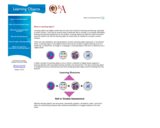
Helpful website with questions and answers on Learning Objects.
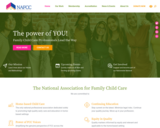
National Association for Family Child Care This organization has worked toward promoting quality and professionalism in the field.

National Association for the Education of Young Children has information dedicated to improving the quality of programs for children from birth through third grade. It discusses public policy, contains professional development opportunities, information for parents and families and article reviews. Past editions of "Young Children" are also available.

National Early Childhood Technical Assistance Center contains early childhood provisions of IDEA, numerous educational publications, a clearinghouse on early interventions and early childhood special education.

The National Head Start Association is a private not-for-profit membership organization dedicated exclusively to meeting the needs of Head Start children and their families. The Association provides support for the entire Head Start community by advocating for policies that strengthen services to Head Start children and their families; by providing extensive training and professional development to Head Start staff; and by developing and disseminating research, information, and resources that enrich Head Start program delivery.

Great web site for information on growth and development for children ages 2-8years old. Would be a good site for Pediatric Nursing, providing information on common childhood health issues. Parenting topics from A-Z with information available from "Ask the Experts" online. There is also information available on age appropriate games and safety issues.
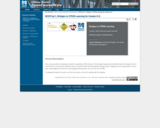
This course provides knowledge and skills in supporting STEM (Science, Technology, Engineering and Math) infusion throughout Out-of-School (OST) environments. Educators learn to support STEM skill development through active, engaging, and fun approaches to each topic, while aligning to the MA-CF and engaging best practices such as ULD and TC/PBL.
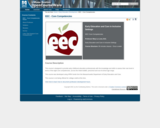
This course is designed to provide early childhood education professionals with the knowledge and skills to assess their own level in terms of the eight core competencies, across the infant-toddler, preschool and out-of-school age range.
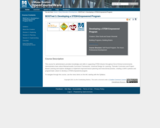
This course for administrators provides knowledge and skills in supporting STEM infusion throughout Out-of-School environments. Administrators learn about Massachusetts Curriculum Frameworks, Universal Design for Learning, Thematic Curriculum and Project-Based Learning and explore strategies to implement improved lesson planning and instructional practice, creating a shift in policies and programmatic culture to develop a STEM-empowered program.
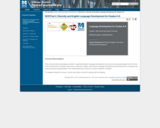
This course provides knowledge and skills in supporting English Language Development and Inclusive Learningthroughout Out-of-School (OST) environments. Educators learn learn to welcome, support, and enhance language and literacy skill development for all children and youth and respond appropriately to the individualized ELD needs of non-native speakers of English.
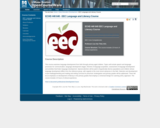
This course examines language development from birth through primary-aged children. Topics will include speech and language processes for communication, language development stages, theories of language acquisition, assessment of language development and activities that foster language development. Special attention will be paid to linguistically diverse populations and children whose language development differs from the reference group, with regards to the most recent advances in the field. Selection and development of pre-reading/prewriting and reading and writing curricula for preschool, kindergarten and primary grades will be addressed. There will be an emphasis on development of literacy in the primary grades that employs a Universal Design for Learning (UDL) approach.
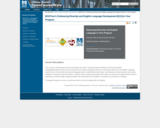
This course examines language development from birth through primary-aged children. Topics will include speech and language processes for communication, language development stages, theories of language acquisition, assessment of language development and activities that foster language development. Special attention will be paid to linguistically diverse populations and children whose language development differs from the reference group, with regards to the most recent advances in the field. Selection and development of pre-reading/prewriting and reading and writing curricula for preschool, kindergarten and primary grades will be addressed. There will be an emphasis on development of literacy in the primary grades that employs a Universal Design for Learning (UDL) approach.
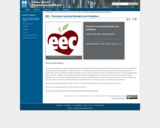
This course is designed to early childhood education professionals with the knowledge and skills to teach each content area according to the preschool learning guidelines, or state standards. This module as part of the course on the preschool learning experiences will explain each part of the standard and give examples of how to teach the standard within an integrated curriculum. Through presentations, online resources, readings, and assignments students will gain knowledge of the components of each area: mathematics, English language arts, science and technology/engineering, the arts, and health education, and history and social science. The last module will cover the content of the Early Childhood Program Standards and how to incorporate those standards into daily practice.
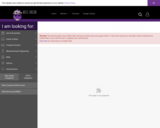
In this interactive game, learners answer 30 questions about early childhood education activities and skills. Up to three people can play on the game board at one time.
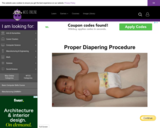
Learners consider the steps and supplies to use when diapering infants and toddlers. The proper diapering procedure not only meets basic care and sanitation needs but builds relationships and promotes the child's learning. Brief quizzes complete the learning object.
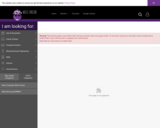
Learners read about the types of clothing considered appropriate for a childcare setting. This activity is designed for students enrolled in an early childhood education program.
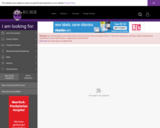
The learner sorts a variety of foods based on personal preferences. Those personal choices are then classified by food group. The learner views the charts and reads information about the major food groups.